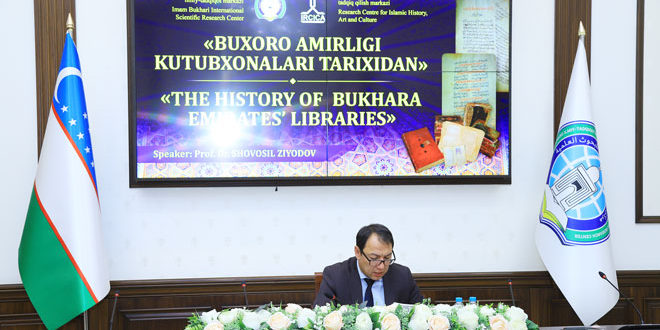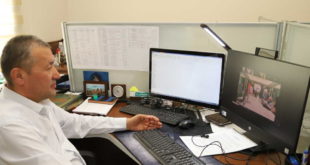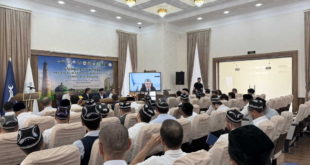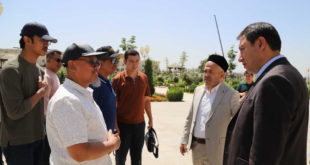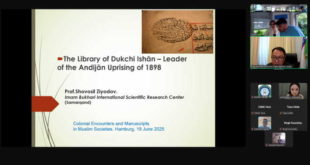In cooperation with the Imam Bukhari International Research Center and the Center for research in Islamic history, art and culture (IRCICA), the next online seminar was held within the framework of the recently launched scientific project “Central Asia-the hearth of Islamic culture and art”.
The Institute of History of the Academy of Sciences of Uzbekistan, the International Islamic Academy of Uzbekistan, the State Institute of Arts and Culture of Uzbekistan, Samarkand State University, Imam Termizi International Research Center, Bukhara State University, Center for Scientific Research, IRCICA Research, and many researchers from Turkey and Austria are about forty in total. The director of the international research center for the history of Imam Bukhari, doctor of history (DSc), senior researcher Shavasil Ziyadov gave a lecture on the topic “Libraries of the Bukhara Emirate”.
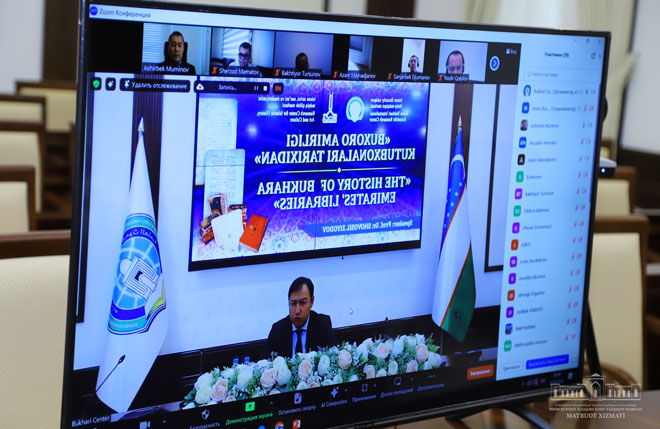
The scientist initially touched on the period of the late 9th century – the reign of the Somonians, when the first information about the history of Bukhara libraries was found. As noted, in the 10th century, the somonian dynastic library was the largest manuscript book complex in Bukhara. Having healed the Emir Noah ibn Mansur and being able to use the library in question, Abu Ali ibn Sina described him as such: “…I entered the treasury of a book of a number of rooms. Each room is lined with crates, one holds Arabic books, another – fiqhga aids… I have seen such books that no one has yet heard their name either. I haven’t seen so many books myself. I read these unique books, mastered the useful Sciences in them, admitted that each author is a great scientist in his field, learned his scientific degree.
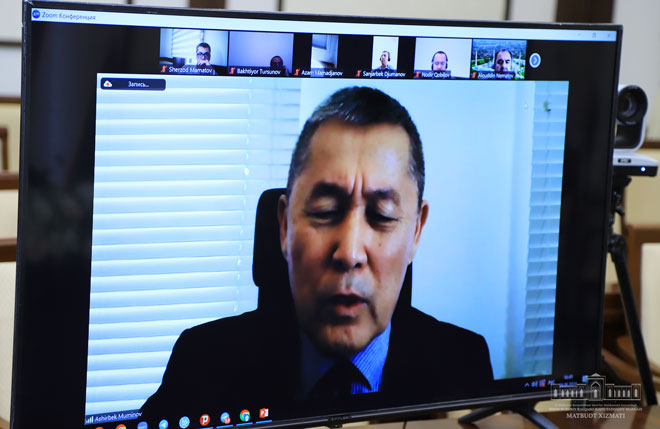
Another dynastic library, which began to accumulate before the Arab conquest, was in Gurganj, serving scholars of the Academy (Khwarazm Ma’mun Academy), who were thunderous under the descendants of Khwarazmshah Ma’mun and Anushtegin, and included Abu Rayhon Beruniy and Ibn Sino.
The speaker provided information on a wide range of works, including information on the factors that served the improvement of the library network and the history of the library’s work. Also, the dynastic libraries of Bukhara kazikalons and new information on Khwaja Muhammad Porso library, the books donated to the Govkushon library of the Jōybor Pilgrims, gave a description of the interesting information and seals found in them.
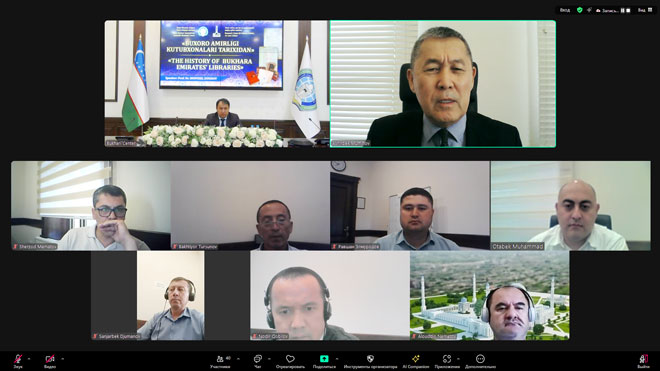
The scientist noted that the books stored in these libraries have not yet been well studied. It is also natural that completely unexplored finds are found in manuscript funds in our country. The solution to the issues that remain unanswered regarding the origin of the manuscripts held in these funds occupies an important place in the study of the history of the book and library culture of our country, and above all, the history of religion, political history and codicology, in general, allows us to study the history of Central Asia and our statehood in more depth.
The Seminar continued with heated questions and answers.
Press service
 Imom Buxoriy xalqaro ilmiy-tadqiqot markazi bukhari.uz
Imom Buxoriy xalqaro ilmiy-tadqiqot markazi bukhari.uz







